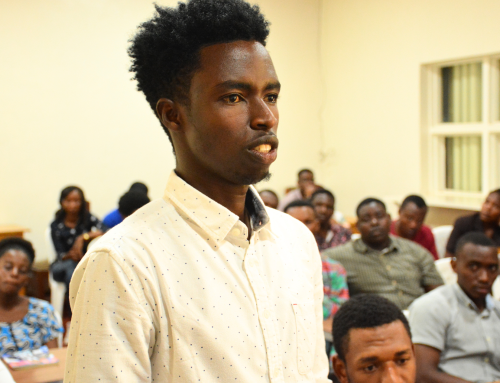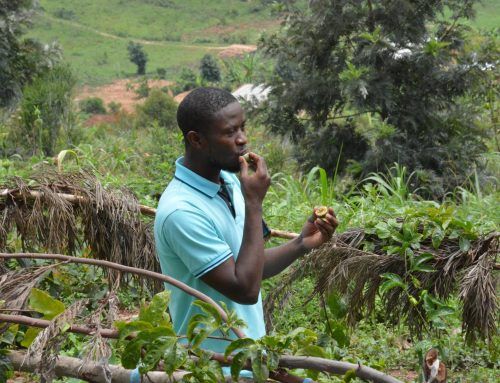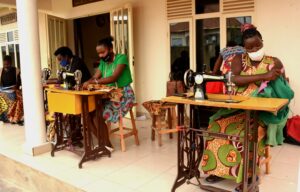
Tailoring class in Nyabisindu slum
The Women Empowerment Project launched by Jesuit Urumuri Centre in November 2020, is progressing along according to plan as the first month of vocational trainings comes to an end. This project dubbed “Long Walk to Recovery – Post COVID19 Period” was initiated as a second phase of “Leave No-one Behind”, a project which accompanied the most vulnerable families during this COVID-19 pandemic period, by providing emergency food from May to July 2020. Beneficiaries of this project are members of selected vulnerable families who are currently receiving training and therefore gaining different skills that will benefit not only themselves in terms of self-sustainability but their families as well.
Launched on the 2nd of November 2020, the “Long walk to Recovery – Post COVID19 Period” project is meant to equip its beneficiaries with social innovation and entrepreneurship skills in order to help them have consistent and reliable sources of income for the betterment of themselves and their families. 50 beneficiaries hailing from slums of Nyagatovu and Nyabisindu as well as from Cyahafi were initially trained in financial literacy at the premises of JUC before they branched off into vocational trainings in hairdressing, bakery and tailoring. Those in Nyagatovu and Nyabisindu are currently receiving their trainings at a saloon, bakery and tailoring house, all located in Remera while beneficiaries from Cyahafi are receiving their training from a bakery, tailoring house and 2 saloons in Nyabugogo.
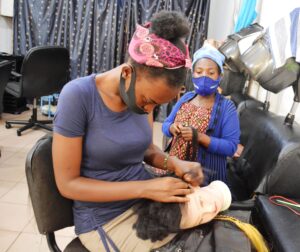
Hairdressing student with her teacher in Nyabugogo
During a recent visit to these locations, JUC staff were pleased to see that all groups are making progress in their different areas of training. Hairdressing students have so far learnt to braid natural hair as well as with extensions. Baking students have learnt to bake different types of bread and biscuits while the tailoring groups can now sew basic clothing such as skirts, shirts and jackets.
Beneficiaries are grateful for the opportunity to learn these skills and are enthusiastically looking forward to the rest of their lessons. Shakina Ukundwa from the baking group in Nyabugogo is looking forward to life after the training; “After gaining these baking skills, I know I will have a good and credible source of income for myself and I believe that this does not only contribute to my development but also to the country’s, because I will be one less unemployed and dependent person for the government to worry about”. Jacqueline Nirere from the tailoring group in Nyabisindu is also excited about her potential independence “I thank God always for having been selected among beneficiaries of this program, I am looking forward to graduating from one standard of living to another thanks to these skills I’ll have gained” Jacqueline Umuhoza from the hairdressing group in Nyabisindu is grateful to have something to occupy herself with while also bettering herself “Sitting at home especially during this pandemic has been depressing and left many of us with no hope for the future. But these classes are renewing that hope and zeal for life in me, I thank Jesuit Centre of Urumuri”
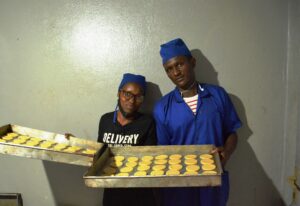
Baking class in Nyabugogo
Despite this project having been initiated for the empowerment of women, 5 men were included as they are the potential breadwinners of their selected vulnerable families which makes the total of women, 45. Vocational trainings in baking and hairdressing are expected to last 3 months while those for tailoring will last 6 months after whose completion the Centre hopes to assist these beneficiaries to start working and utilizing their skills.









